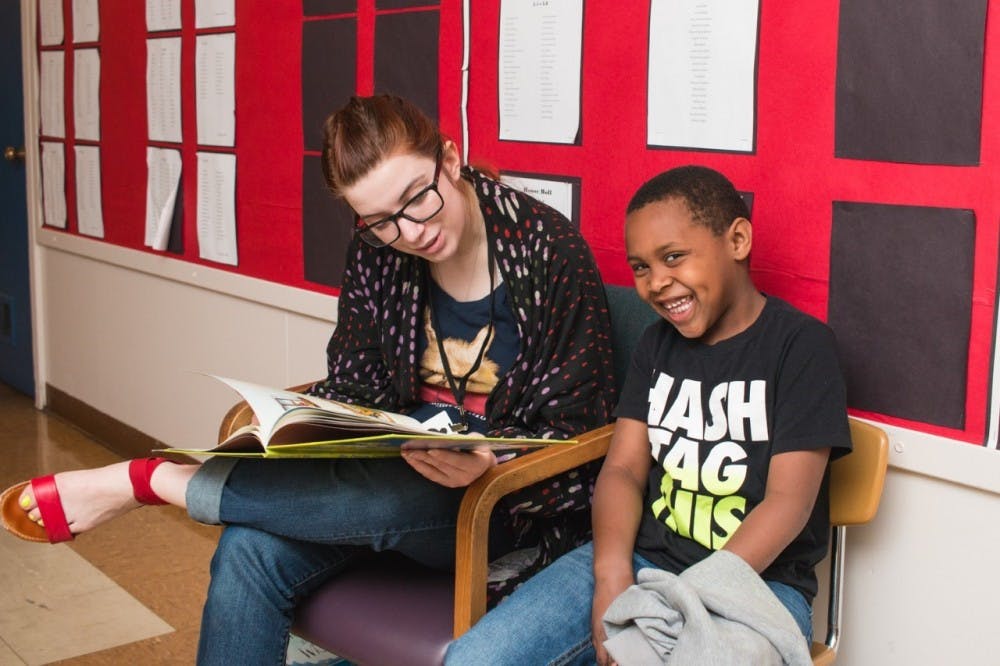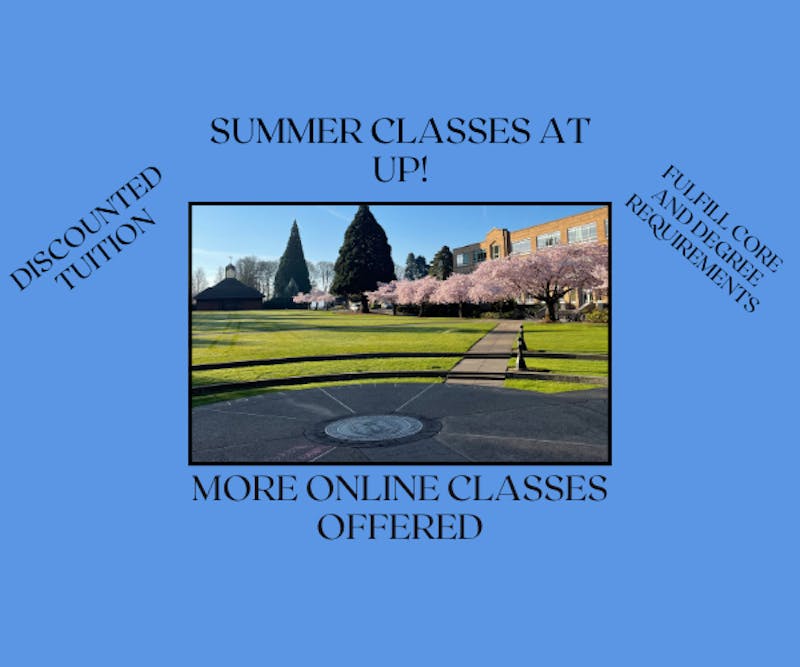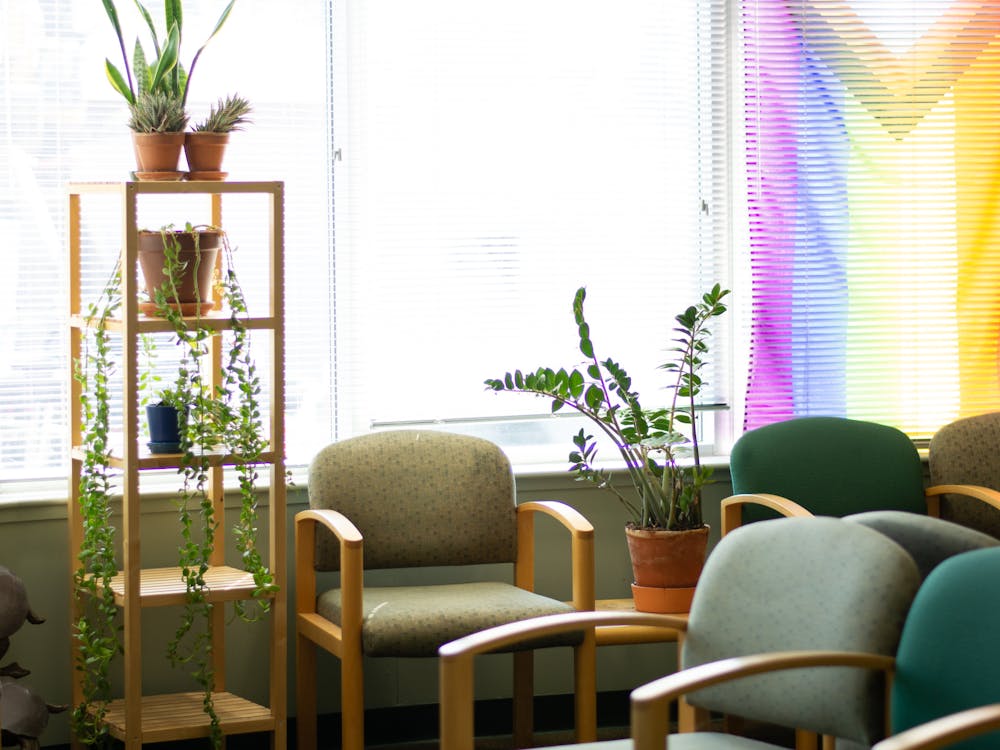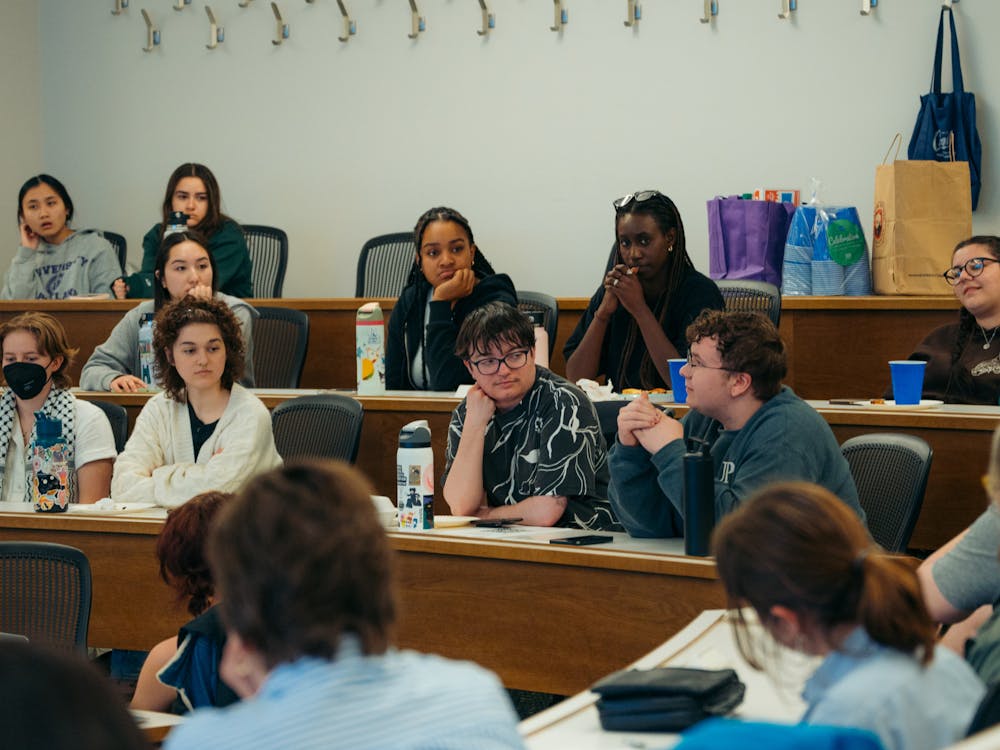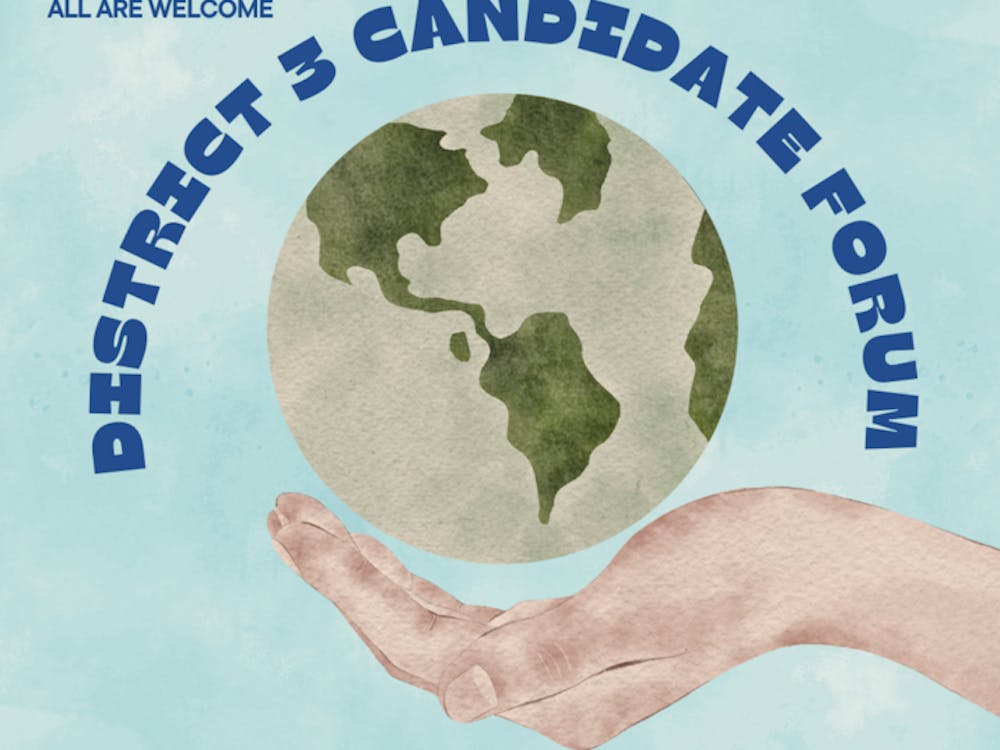As University of Portland’s SMART volunteers enter the classrooms at local elementary schools, children's faces light up. Their hour of reading disappears all too quickly, but the students, both old and young, look forward to discovering more literary worlds the next week when the volunteers return.
Kylie Konrath and her team of 40 UP volunteers aim to make local elementary school students “SMART” by fostering a love of reading. SMART is a 25-year-old Oregon-wide program that stands for “Start Making A Reader Today.” University of Portland volunteers go to local elementary schools for an hour or two each week and read chapter books with students. The college students pair up with the same two children each week and, in the process, both encourage the younger students to read and become role models for them.
Konrath, a senior biochemistry major and the campus volunteer coordinator for SMART, brought the program to the Moreau Center last year. UP volunteers read to students once or twice a week at four locations: Rosa Parks Elementary School, Astor Elementary School, Sitton Elementary School and the Blazers Boys and Girls Club.
“In terms of a time commitment … there’s minimal responsibility but a lot of reward because (the students are) always so excited,” said volunteer and sophomore psychology major Allie Calaman.
Students pre-K through third grade are selected by their teachers to participate in SMART for a number of reasons. A teacher may think that a child does not have many books at home, and SMART allows the students to take home books every month. Perhaps a student struggles in reading and needs help developing confidence and skills. Or the child may simply need an older role model.
“(The students) know that you go to the University of Portland, and they’re like, ‘Wow, I want to be like them someday. I want to go to college someday, and I know that by reading, or by you reading to me, that’s going to help me get there,’” said volunteer and junior nursing major Ellycia Yokomizo.
The aim of SMART is not to teach children to read but to make them enthusiastic about reading. In the process, Konrath says their literacy skills improve, but the primary objective is to get them genuinely excited about reading.
SMART also serves children of diverse racial and economic backgrounds that may get overlooked by other programs.
“Working with kids is one of the best ways to turn around poverty and a lot of the social justice problems we face,” Konrath said. “If you start early and help people before there’s gaps, (you) can get an equity from the beginning of the problem rather than trying to address it later once problems arise.”
Teachers are surveyed at both the beginning and end of the school year about participating students’ literacy and behavior. Many teachers observe an improvement in children’s reading fluency, comprehension of books and focus in class, Konrath said.
Konrath recalled her experience working with a kindergarten student last year who would ask on every page, “Can I go back to the room?” and had difficulty focusing on and comprehending the book. By the end of the year, the two were reading books together, he clearly understood the story and his reading skills had improved greatly.
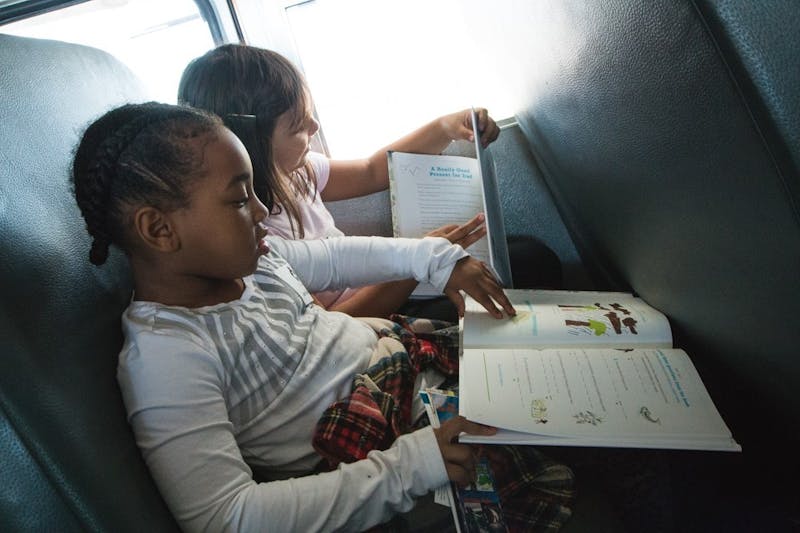
A few weeks ago, SMART celebrated its 25th anniversary. Elementary schools that have participated in the program from the start brought students to Powell’s Bookstore to receive a compilation of 25 stories in a book written and illustrated by local authors and artists. The authors and illustrators were also there to sign the books.
Konrath said she believes it’s easy for college students to become so busy in university life and the campus itself that they forget they exist in a larger community. SMART provides students an opportunity to make a commitment to improving the community beyond The Bluff.
“We’re going into the world, and eventually, we’ll be leaders,” Konrath said, “if we don’t have connections out in the world and see what’s important, we won’t have the same motivation to do good.”



